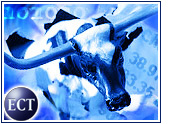
Apparently hoping to ride the coattails of the first successful Internet IPO in well over a year, closeout e-tailer Overstock.com has filed for its own initial public offering.
Salt Lake City, Utah-based Overstock, which specializes in selling overstocked, discount and closeout merchandise, informed the U.S. Securities and Exchange Commission (SEC) on Tuesday of its intentions to go public.
The e-tailer told the SEC it hopes to raise US$37 million through the stock sale. It did not disclose how many shares it will issue or set a price range, and no time frame was placed on the offering.
Timing Is Everything
The Overstock filing came less than a month after online payment company PayPal (Nasdaq: PYPL) launched the first successful dot-com IPO in many months.
Investors gave PayPal shares a solid first-day bump of more than 40 percent over its $13 offering price. Except for a brief dip, PayPal shares have traded consistently above that offering price and stood at $17.10 in early trading Wednesday.
But some analysts said Overstock is a different kind of Internet company. They questioned whether investors are ready to invest in a pure-play e-tailer when the trend in e-commerce is clearly toward multichannel selling.
“PayPal was a special case, with its explosive growth, dominant market share and positive cash flow,” Morningstar.com analyst George Nichols told the E-Commerce Times. “Overstock may be encouraged by PayPal’s success, but investors are likely to give Overstock a lukewarm reception at best.”
Tough Business
While PayPal has become a leader in the online payment field, Nichols said, “e-tailing is a crowded field with low margins.”
By feeding off the inventory left behind by dot-com failures, Overstock grew quickly, boosting revenue from less than $2 million in 1999 to more than $40 million in 2001.
Although the company began to call itself profitable halfway through 2000, its SEC filing shows that it actually lost $8 million in 1999, $21 million in 2000 and $13 million in 2001.
Overstock said it has about $10 million in cash and reserves and will use the proceeds of its IPO for marketing, debt payment and general corporate purposes.
In fact, the company warned in its filing that it may have a difficult time achieving and maintaining profitability.
“We will need to generate significant revenues to achieve and maintain profitability, and we may not be able to do so,” the company said. “If our revenues grow more slowly than we anticipate, or if our operating expenses exceed our expectations, our financial results would be severely harmed.”
“Overstock’s growth rates are unimpressive,” Nichols noted, pointing to an increase of just 5 percent during the fourth quarter, which saw some competitors clock sales growth of 15 percent.
Amazon: Friend or Foe?
During the past two years, Overstock and Amazon.com have had several run-ins. First, Amazon said it would hand over some of its electronics fulfillment to Overstock, which pulled out of the personal computer part of the deal just days later citing weak sales.
A short time later, Overstock announced it would sell books through its site and used the announcement to take shots at Amazon. “Our competition invested massively in high-tech warehouses with allegedly labor-saving technology,” Overstock CEO Patrick Byrne said at the time. “We did not, and now we can pass the savings on to the consumer.”
But Overstock’s SEC filing noted that Amazon is the company’s largest outside shareholder, with about 23 million shares, or about 7 percent of the company.
Alternate Route
By choosing W.R. Hambrecht as its underwriter, Overstock has decided to go public through a Dutch auction.
Also known as an open IPO, the auction gives retail investors a chance to bid on the stock before it is priced for sale. Once it is priced, investors whose bids met or exceeded the actual sales price get an allotment of shares in the IPO.
Past open IPOs have had mixed success. Several tech firms took this route at the height of the dot-com craze. Both Andover.net and Nogatech were later acquired by competitors, while content site Salon.com (Nasdaq: SALNC) has struggled mightily and was trading at 13 cents per share early Wednesday.
More recent open IPOs handled by W.R. Hambrecht include Peet’s Coffee (Nasdaq: PEET), which is trading above its offering price, and sandwich chain Briazz (Nasdaq: BRZZ), which has never traded higher than its $9 offering price.
“Some firms go the Dutch auction route if they can’t find a large investment bank to bring it to market,” Nichols said. “Such offerings haven’t fared well over the long term.”
















































Is anyone else following this story? Patrick Byrne is another one of Jack Byrne’s overachieving sons which is what brings me here. reading their S-1 filing they look like they need *a lot* more revenue to be profitable – the $100m that Byrne is talking about might do it, but it looks like they’re thinking of a $200-300m market cap which is a bit on the rich side for me
peter xyz